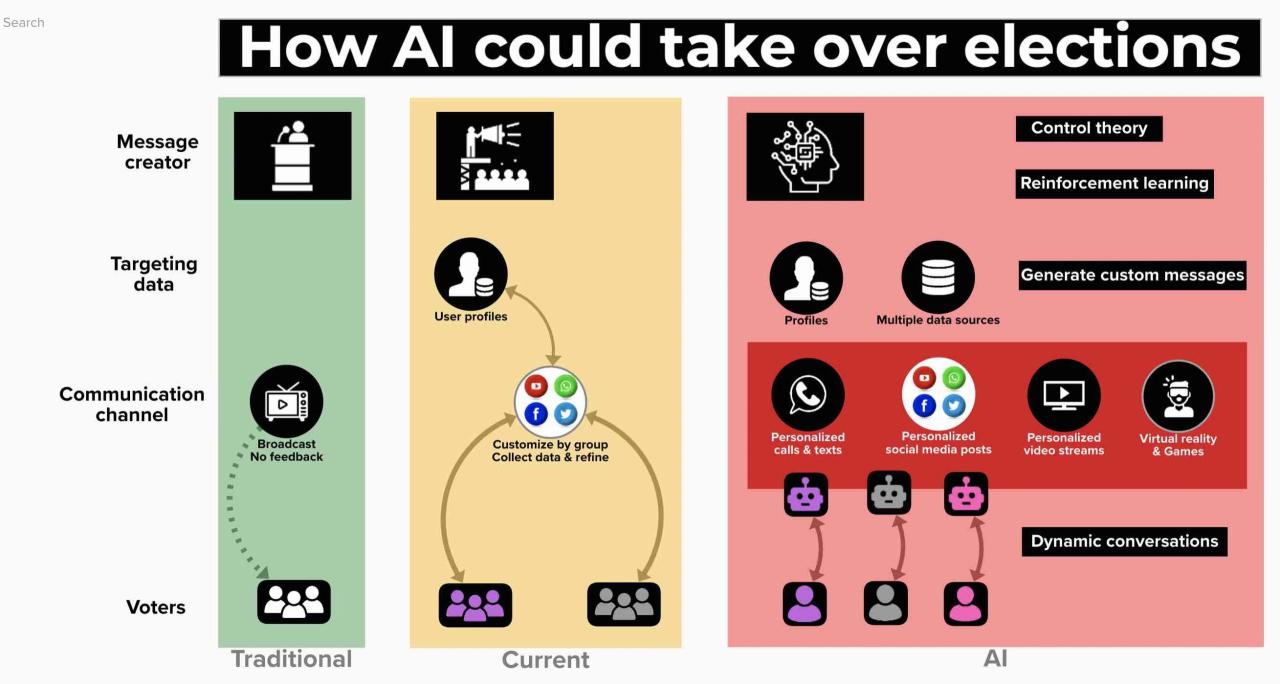The Role of AI in Political Campaigns: Australian Election Ads Go Viral – The Role of AI in Political Campaigns Australian Election Ads Go Viral is a fascinating exploration of how artificial intelligence is reshaping the landscape of political advertising in Australia. As technology continues to advance, AI plays a pivotal role in creating compelling and viral content that captures the attention of voters. This transformation not only enhances the effectiveness of campaigns but also raises questions about ethics, authenticity, and the influence of algorithm-driven messaging in the democratic process.
With the increasing presence of social media and digital platforms, political ads have become more targeted and engaging than ever before. AI tools analyze vast amounts of data to craft messages that resonate with specific demographics, ensuring that each campaign can maximize its outreach. This innovative approach has led to some Australian election ads going viral, sparking conversations and debates across the nation.
In today’s fast-paced world, the significance of effective communication cannot be overstated. Communication serves as the backbone of human interaction, allowing individuals to share ideas, express emotions, and foster connections. Whether it’s in personal relationships, the workplace, or even in social settings, the ability to convey thoughts clearly and concisely is essential for success and understanding. The Importance of Communication SkillsCommunication skills encompass a wide range of abilities, including listening, speaking, writing, and non-verbal communication.
Each of these elements plays a crucial role in how we interact with others. For instance, listening is often overlooked but is arguably one of the most critical components of effective communication. When we listen actively, we demonstrate respect for the speaker, gain deeper insights, and foster trust. Speaking clearly and confidently is equally important. The way we articulate our thoughts can significantly impact how our message is received.
Using appropriate tone, volume, and pace conveys our emotions and intentions, making our communication more effective. Furthermore, in an increasingly digital world, writing skills have become paramount. Whether it’s crafting an email, writing reports, or engaging in social media, the ability to express ourselves in writing has far-reaching implications.Non-verbal communication, including body language, facial expressions, and gestures, also plays a vital role.
These non-verbal cues often communicate more than words alone. For example, maintaining eye contact can signify confidence and engagement, while crossed arms may suggest defensiveness or disinterest. Understanding and being aware of our non-verbal signals can enhance our communication effectiveness. Challenges in CommunicationDespite its importance, effective communication is not always easy. Numerous factors can hinder our ability to connect with others.
One of the most significant barriers is misinterpretation. Words can be ambiguous, and what one person intends to convey may not be the same as how another person interprets it. This is particularly true in written communication, where tone and context can easily be lost.Cultural differences also play a significant role in communication. Different cultures have unique ways of expressing themselves, leading to potential misunderstandings.
For instance, some cultures value directness, while others may prioritize subtlety and indirect communication. Being culturally aware can help bridge these gaps and facilitate smoother interactions.Additionally, emotional barriers can impede effective communication. Stress, anxiety, and frustration can cloud our judgment and affect how we express ourselves. It’s essential to recognize our emotions and manage them to communicate effectively. Practicing mindfulness and self-awareness can be helpful strategies in overcoming these emotional hurdles.
Improving Communication SkillsFortunately, communication skills can be developed and refined over time. Here are some practical steps to enhance your communication abilities:
1. Practice Active Listening
Focus on what the speaker is saying without formulating your response while they are still talking. Show that you are engaged by nodding and using verbal affirmations like “I see” or “That makes sense.”
2. Be Clear and Concise
When speaking or writing, aim to be as straightforward as possible. Avoid jargon or overly complex language that may confuse the listener or reader.
3. Ask Questions
Engaging in a dialogue by asking questions demonstrates interest and clarification. It also encourages a more interactive and enriching conversation.
4. Observe Non-Verbal Cues
Pay attention to body language—both yours and others’. Be aware of how your gestures and expressions may be perceived and adjust them if necessary to align with your message.
5. Seek Feedback
Don’t hesitate to ask for feedback on your communication style. Constructive criticism can help you identify areas for improvement that you may not have noticed otherwise.
6. Cultivate Empathy
Try to understand things from the other person’s perspective. Empathy fosters connection and can improve the overall quality of communication.
7. Practice Public Speaking
Engaging in public speaking opportunities can boost your confidence and help you become a more effective communicator. Joining groups like Toastmasters can provide a supportive environment for practice.
8. Read and Write Regularly
Expanding your vocabulary and improving your writing skills through regular reading and writing can enhance your ability to communicate effectively. The Role of Technology in CommunicationIn recent years, technology has transformed the way we communicate. With the rise of social media, instant messaging, and video conferencing, the landscape of communication has changed dramatically. While these tools offer convenience and connectivity, they also present new challenges.For instance, the prevalence of digital communication has led to an increase in misunderstandings due to the lack of non-verbal cues.
Emojis and gifs can help convey emotions, but they don’t always substitute for face-to-face interaction. Moreover, the habit of communicating through screens can diminish our ability to engage in meaningful conversations in person.It’s essential to strike a balance between utilizing technological advancements and maintaining traditional face-to-face communication. Each mode has its place, and recognizing when to use one over the other can enhance our overall effectiveness in communication.

ConclusionIn conclusion, effective communication is an indispensable skill that affects nearly every aspect of our lives. By honing our communication abilities, we can foster better relationships, navigate challenges more effectively, and create a more inclusive environment wherever we go. Whether through active listening, clear articulation, or being mindful of non-verbal signals, we can all take steps to improve our communication skills.
As we continue to evolve in a world increasingly dominated by technology, let’s not forget the power of genuine, face-to-face conversations that can lead to understanding, connection, and growth.




